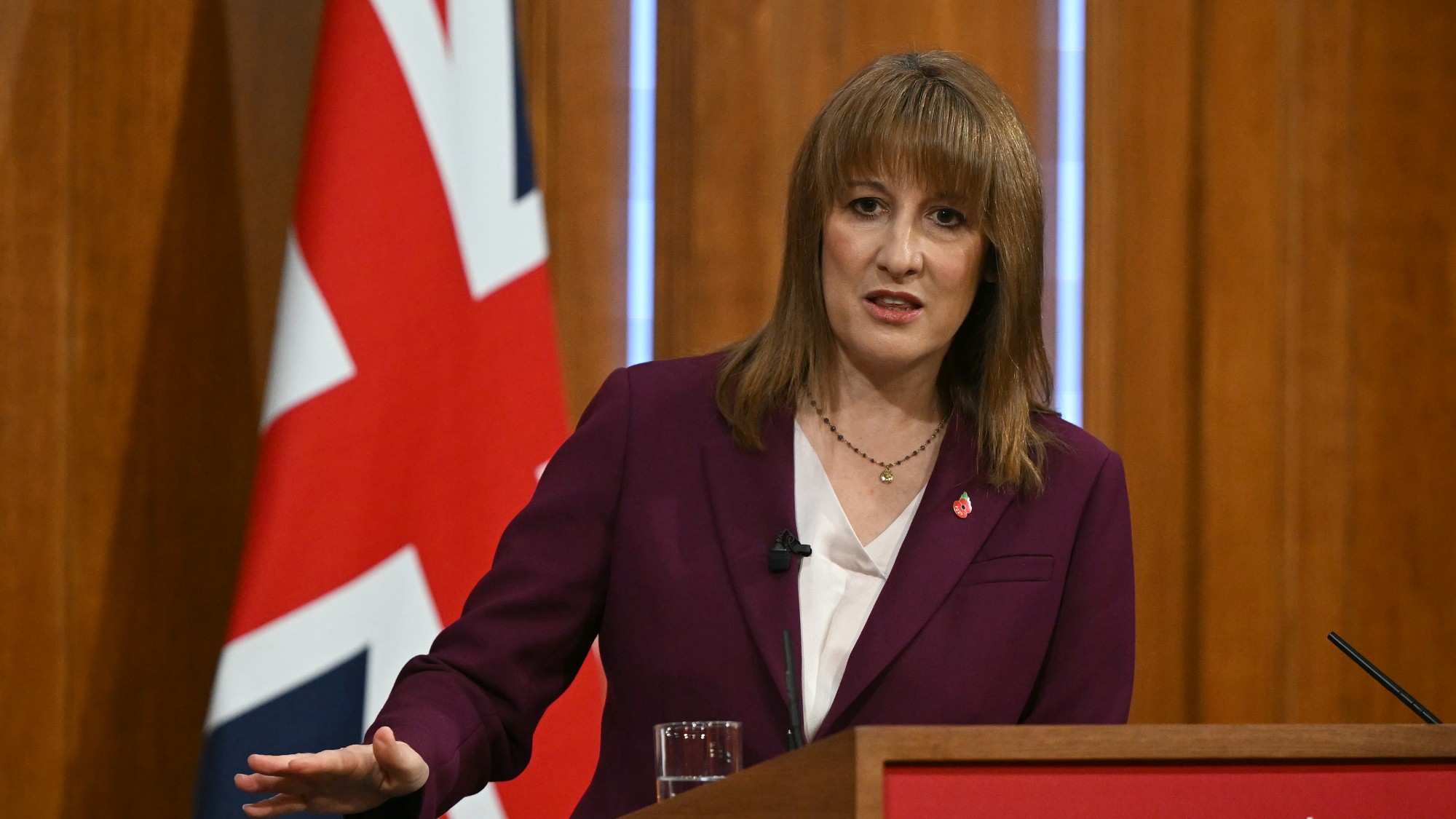Will Labour grasp the council tax nettle?
Plans for stamp duty and council tax reform could raise revenue for the Treasury without breaking Labour's manifesto promises

A free daily email with the biggest news stories of the day – and the best features from TheWeek.com
You are now subscribed
Your newsletter sign-up was successful
Chancellor Rachel Reeves is considering a new tax on the sale of homes worth more than £500,000 as a step towards a "radical" overhaul of stamp duty and council tax.
Treasury officials are reportedly looking at how a new "proportional" property tax, which would replace stamp duty on primary homes, could be implemented, said The Guardian. They are also studying whether a local property tax could then replace council tax in the medium term "in an effort to repair battered local authority finances".
What did the commentators say?
Reeves is under "significant pressure" from Labour MPs and ministers to raise taxes on wealth, while sticking to the party's election pledge not to touch income tax, VAT or National Insurance, said the Financial Times. Treasury officials are "racing" to find reforms that boost growth, amid warnings that a £10 billion hole could open in the government's fiscal plans following weaker than expected productivity forecasts.
The Week
Escape your echo chamber. Get the facts behind the news, plus analysis from multiple perspectives.

Sign up for The Week's Free Newsletters
From our morning news briefing to a weekly Good News Newsletter, get the best of The Week delivered directly to your inbox.
From our morning news briefing to a weekly Good News Newsletter, get the best of The Week delivered directly to your inbox.
Officials have "downplayed" the idea of a new wealth tax, backed by figures like former Labour leader Neil Kinnock, arguing that it would be too complex and slow to introduce. But Reeves "has not excluded raising or changing existing taxes" and has long argued for "fundamental reforms to the way Britain taxes property". In a 2018 pamphlet, she argued that council tax "is at the very least long overdue a re-evaluation and revision of existing bands".
The plans could potentially provide "valuable political cover" for Reeves by raising extra revenue for the Treasury without breaking Labour's manifesto pledge to not raise taxes on working people, said The Guardian. Yet while organisations such as the Institute for Fiscal Studies say that increasing council tax rates could bring in close to £3.5 billion for the Treasury, it also risks a "ferocious backlash among some homeowners", said the FT.
And opposition to the national property tax is already surfacing. Estate agent Simon Gerrard told The Independent that such a move would amount to a "tax on ordinary Londoners". He argued that the threshold should be higher in London, where the average property price is more than £650,000. "It's already nearly impossible for normal people to start a family in London as it is. This London tax will only make it harder."
TV property show presenter Kirstie Allsopp also criticised the idea, telling Times Radio it would be "destabilising for people's homes and mortgages".
A free daily email with the biggest news stories of the day – and the best features from TheWeek.com
What next?
No final decisions have been made, said The Guardian. While a national tax "could be implemented during this parliament", any reforms to council tax "would take longer, at least requiring Labour to win a second term in office".
And any changes to stamp duty that Reeves might be tempted to make in the Autumn Budget "would entail short-term revenue losses as the new system bedded in over a number of years", said the FT.
"She needs money upfront and she has fiscal rules to hit," said Tim Leunig, a former government adviser and now chief economist at Nesta, a UK innovation charity. "However, reforming this country's crazy property tax system is a laudable goal that would raise economic growth in the medium term."
Sorcha Bradley is a writer at The Week and a regular on “The Week Unwrapped” podcast. She worked at The Week magazine for a year and a half before taking up her current role with the digital team, where she mostly covers UK current affairs and politics. Before joining The Week, Sorcha worked at slow-news start-up Tortoise Media. She has also written for Sky News, The Sunday Times, the London Evening Standard and Grazia magazine, among other publications. She has a master’s in newspaper journalism from City, University of London, where she specialised in political journalism.
-
 Nuuk becomes ground zero for Greenland’s diplomatic straits
Nuuk becomes ground zero for Greenland’s diplomatic straitsIN THE SPOTLIGHT A flurry of new consular activity in the remote Danish protectorate shows how important Greenland has become to Europeans’ anxiety about American imperialism
-
 ‘This is something that happens all too often’
‘This is something that happens all too often’Instant Opinion Opinion, comment and editorials of the day
-
 House votes to end Trump’s Canada tariffs
House votes to end Trump’s Canada tariffsSpeed Read Six Republicans joined with Democrats to repeal the president’s tariffs
-
 Reforming the House of Lords
Reforming the House of LordsThe Explainer Keir Starmer’s government regards reform of the House of Lords as ‘long overdue and essential’
-
 How long can Keir Starmer last as Labour leader?
How long can Keir Starmer last as Labour leader?Today's Big Question Pathway to a coup ‘still unclear’ even as potential challengers begin manoeuvring into position
-
 The launch of Your Party: how it could work
The launch of Your Party: how it could workThe Explainer Despite landmark decisions made over the party’s makeup at their first conference, core frustrations are ‘likely to only intensify in the near-future’
-
 What does the fall in net migration mean for the UK?
What does the fall in net migration mean for the UK?Today’s Big Question With Labour and the Tories trying to ‘claim credit’ for lower figures, the ‘underlying picture is far less clear-cut’
-
 Will Rachel Reeves’ tax U-turn be disastrous?
Will Rachel Reeves’ tax U-turn be disastrous?Today’s Big Question The chancellor scraps income tax rises for a ‘smorgasbord’ of smaller revenue-raising options
-
 Will the public buy Rachel Reeves’s tax rises?
Will the public buy Rachel Reeves’s tax rises?Today’s Big Question The Chancellor refused to rule out tax increases in her televised address, and is set to reverse pledges made in the election manifesto
-
 Five takeaways from Plaid Cymru’s historic Caerphilly by-election win
Five takeaways from Plaid Cymru’s historic Caerphilly by-election winThe Explainer The ‘big beasts’ were ‘humbled’ but there was disappointment for second-placed Reform too
-
 The Chinese threat: No. 10’s evidence leads to more questions
The Chinese threat: No. 10’s evidence leads to more questionsTalking Point Keir Starmer is under pressure after collapsed spying trial